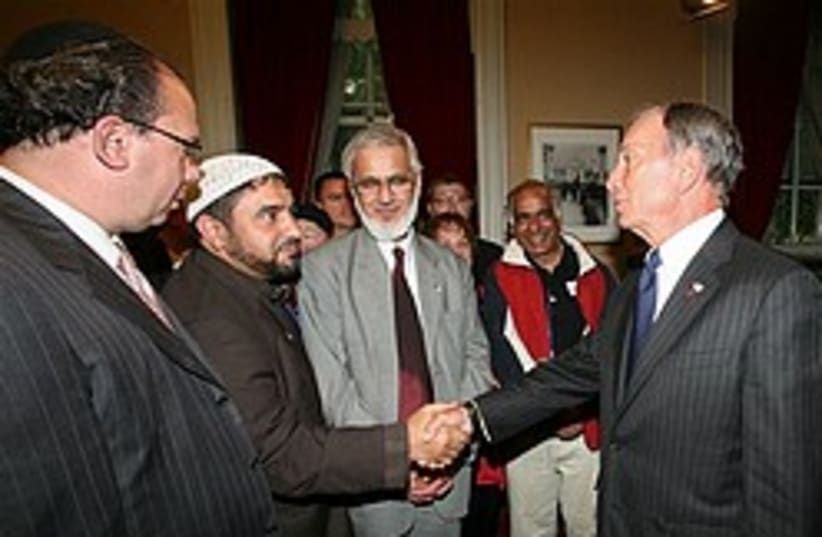NEW YORK - During a trip to Yankee Stadium with a group of European imams and rabbis last week, their host, Rabbi Marc Schneier, was struck by the impact of the stadium's kosher food: All of his guests, with their varying dietary restrictions, could take part in the fare.
For Schneier, president and founder of the Foundation for Ethnic Understanding, the scenario was a coming home of sorts. In 1998, as president of the New York Board of Rabbis, Schneier was instrumental in bringing kashrut to the stadium. "For me, it was doubly gratifying," he remarked after the game.
But the group was hardly in town for baseball.
On a mission to New York and Washington from July 20 to 23, more than a dozen rabbis and imams from Belgium, France, Germany, Italy, the Netherlands, Norway, Russia, Switzerland and the United Kingdom took part in a program organized by Schneier to introduce his Muslim-Jewish interfaith program to Europe. The program "twins" imams and rabbis, with the goal of promoting cooperation.
On Thursday, as the conference wound down, participants signed a declaration to bring the program to Europe by seeking "to identify areas in which our communities can work together and create cooperate projects."
"We had a singular objective," Schneier said of the trip.
He said current Muslim-Jewish dialogue in Europe exists on a leadership level, and he outlined plans to foster relationships "on a much more massive, much more people-to-people scale."
The European clergy will formally kick off their partnership in November, during a conference that will match local mosques and synagogues, which ultimately will hold joint programs or otherwise work together to combat Islamophobia and anti-Semitism. In North America, the partnership began last November and includes 50 mosques and 50 synagogues across the US and Canada.
For participants, the trip was an opportunity to meet counterparts with whom they normally have little contact.
"In the US, there is much more cooperation between Muslims and Jews," said Geneva Chief Rabbi Izhak Dayan. The conference fostered "mutual respect" among participants and underscored shared goals, including fighting Islamophobia and anti-Semitism, he said. "Together with the Muslim community, we can preserve our religious rights."
In Geneva, Muslims and Jews had little in common, he said. "I can't say that we have a certain fraternity."
The program changed his perspective, though, and meeting a clergyman from his city's Muslim community was a particularly profound experience. "I discovered another man in front of me and we have a lot of points in common... To invite the Muslim community to the Jewish community. I think it will be something easy for us and we will do it," Dayan said.
The four-day mission to New York and Washington included stops at Ellis Island, Yankee Stadium, the United Nations, the State Department, Congress, the White House and the US Memorial Holocaust Museum. A particularly poignant stop was made at Ground Zero, where imams and rabbis offered prayers.
Sheikh Dr. Muhammad al-Hussaini, who came from the United Kingdom, said he was inspired to participate in the conference because "it's absolutely critical at this juncture that there are Muslim voices that are willing to stand firmly and practice in opposition to Islamic-inspired anti-Semitism."
Hussaini stressed that Muslim-Jewish dialogue benefited from being grounded in scripture. During the conference, he delivered a presentation addressing the importance of text in Muslim-Jewish relations.
"Hijacking of scripture is an essential part of what's going on in the battlegrounds of the Islamic world," he said. Scriptural reasoning, havruta style, "enables us in powerful ways to challenge extremist interpretations."
"Twinning" did not mean consensus, he said. "You don't always agree with your friends. This whole idea of building relationships rather than consensus is really important," he said.
| More about: | House (TV series), Yankee Stadium, United Kingdom, North America |
